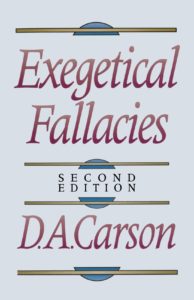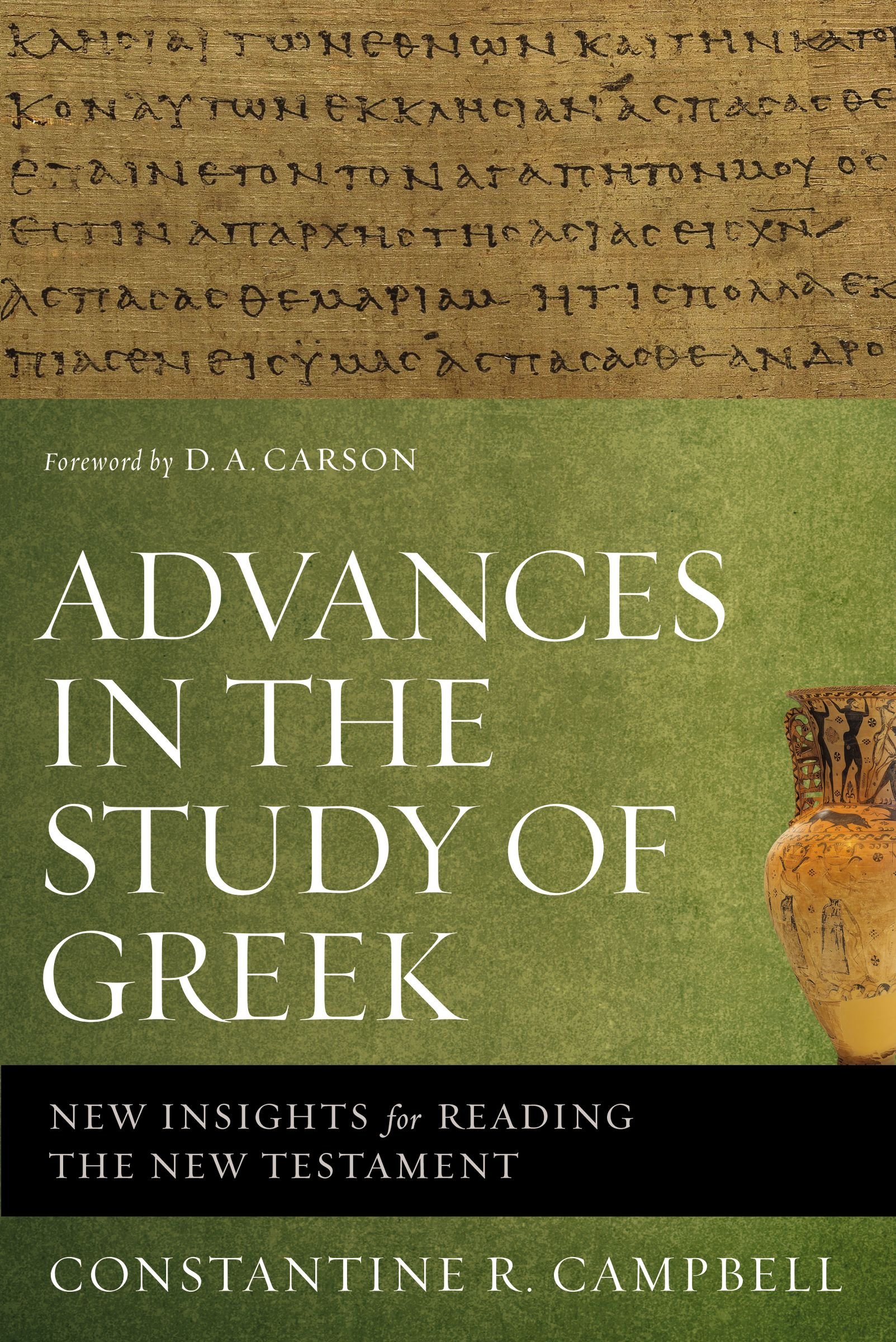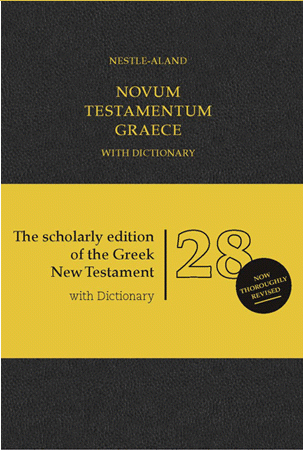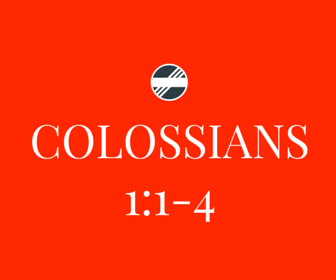2015 was a good year. We added many contributors, created 19 basic Greek videos (more to come), launched our first Greek reading series on Colossians (more to come), gained hundreds for our Basic Greek for the Week email, reviewed and highlighted tons of books, and connected with lots of new friends.
The best thing about 2015 is that we’ve found many people–students, pastors, and scholars–who are serious about the biblical languages and exegesis.
To start the new year, we wanted to look back at the top five posts from 2015. The fact that all of them are Greek posts makes us pretty happy! (We excluded book sale posts from this list since they are transitory.)
 Post #5: Exegetical Fallacies: Word Studies, Part 1
Post #5: Exegetical Fallacies: Word Studies, Part 1
D. A. Carson’s Exegetical Fallacies is a must-read for every student of exegesis (Greek or Hebrew). This is the first post in a series summarizing the word study fallacies listed by Carson. Each fallacy has a definition and example. More posts in this series are forthcoming.
 Post #4: Keep Your Greek: Don’t Lose Your Vocabulary
Post #4: Keep Your Greek: Don’t Lose Your Vocabulary
It’s hard to keep up with your vocab once your Greek professor stops giving you quizzes. Here’s a few tips to help you create good study habits from the beginning, and some tools to help you keep up the work after you graduate.
 Post #3: Advances in the Study of Greek: New Insights for Reading the New Testament, by Constantine R. Campbell
Post #3: Advances in the Study of Greek: New Insights for Reading the New Testament, by Constantine R. Campbell
Campbell’s book has received much well-deserved attention. It is written for students so it is quite accessible. It also covers many areas of linguistics that are not generally covered in Greek courses in seminary. This review was our most-viewed book review of the year.
Post #2: Keep Your Greek: Choose the Right Bible
 Ever wonder what Greek New Testament you should own? It’s an important decision because it will help or hinder your attempt to keep up with your Greek after you graduate. Here we talk about the three different kinds of Greek New Testaments (readers, parallels, and Greek-only) and how each of them can help or hinder you.
Ever wonder what Greek New Testament you should own? It’s an important decision because it will help or hinder your attempt to keep up with your Greek after you graduate. Here we talk about the three different kinds of Greek New Testaments (readers, parallels, and Greek-only) and how each of them can help or hinder you.
Post #1: Colossians 1:1-4 Greek Reading Video
 The most popular post this year was the first video in our Colossians Greek Reading Videos series, which walks you through the first four verses of the Greek text of Colossians. I’m happy to see this post at #1 because this series encapsulates what Exegetical Tools wants to do: to help you retain and improve your biblical languages. We hope this series is one of many to come that will help you do that.
The most popular post this year was the first video in our Colossians Greek Reading Videos series, which walks you through the first four verses of the Greek text of Colossians. I’m happy to see this post at #1 because this series encapsulates what Exegetical Tools wants to do: to help you retain and improve your biblical languages. We hope this series is one of many to come that will help you do that.


